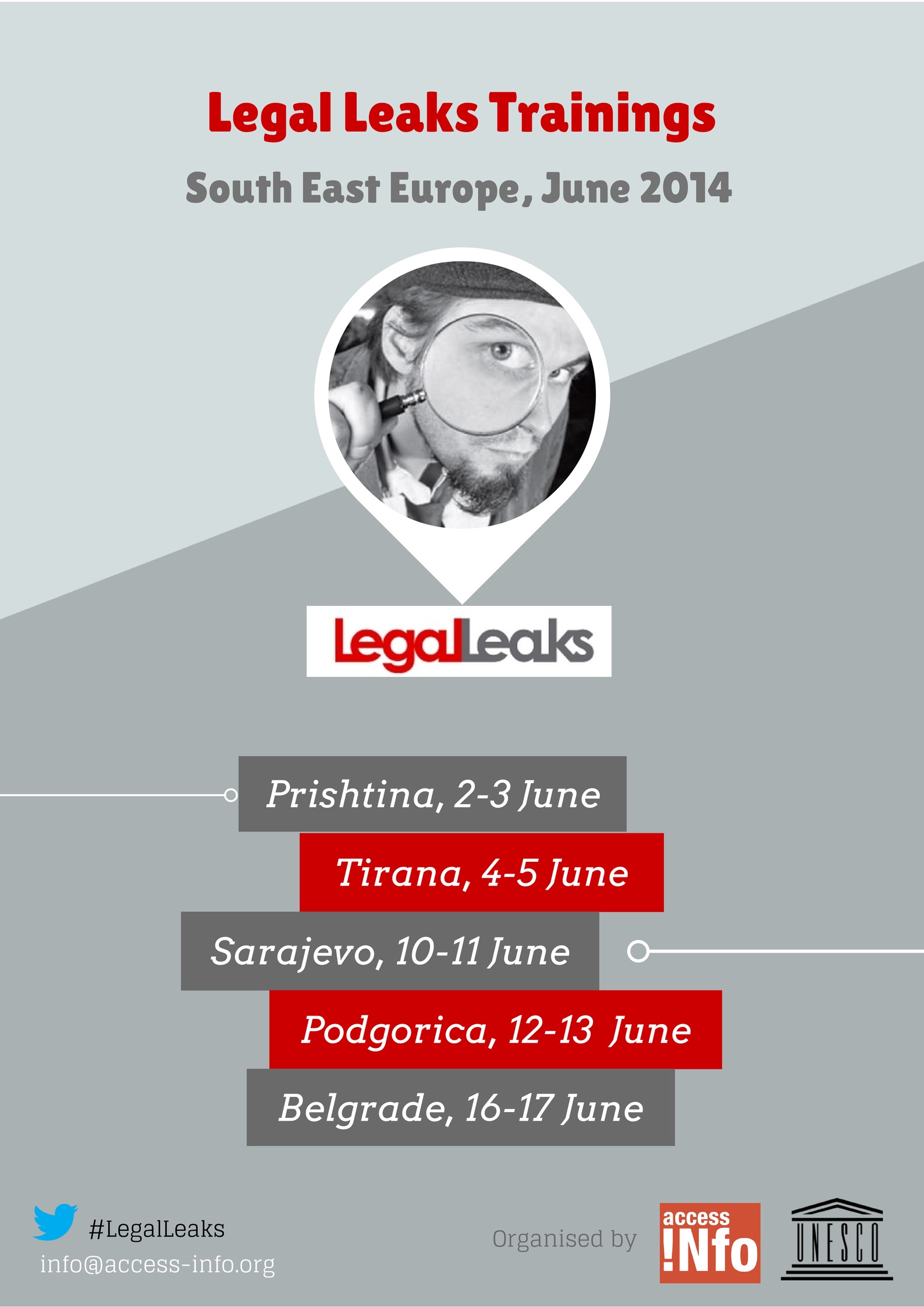Belgrade, 18 June 2014 – Belgrade was the fifth and last stop of the Legal Leaks training tour for media professionals in South East Europe.
The workshop held on 16 and 17 June 2014 was opened by Rodoljub Sabic, Commissioner for Information of Public Importance and Personal Data Protection in Serbia, who highlighted the importance of journalists for public debate and the need for access to information to reinforce the role they play in the society. «Truth seeking requires skills,» he told the around 30 journalists from around the country.
The event was organized by UNESCO in cooperation with Access Info Europe, the Press Council of Serbia and SEENPM. On the first day, Access Info Europe presented the updated version of the Legal Leaks Toolkit which is tailored to the Serbian legal framework and available in the local language. Journalists shared their experiences using access to information laws and raised several important issues such as exceptions and the right of access to emails.
In the afternoon session Natalija Cetkovic, Assistant of General Secretary of the Commissioner for information of Public Importance and Personal Data Protection, explained in details the procedure for accessing information in Serbia. Some journalists took the chance to ask relevant questions such as, is a blogger considered as a journalist under the Serbian access to information law. Vladimir Radomirovic, editor-in-chief of Pistaljka (The Whistle), the whistleblowing website that publishes investigative stories on corruption in Serbia, explained the challenges of leaking information in Serbia.
On the second day of the training, the training focused on media self-regulation and data journalism. Ljiljana Smajlovic, President of the Press Council and also of the Journalists Association of Serbia (UNS), explained how Serbia follows the Norwegian model encouraging balance and right of reply in articles even before they are published and seeking to ensure «fast, free, and fair» findings in case of complaints. Most papers were keen not to be found in the wrong by the Press Council. Their definition of journalism includes editorial intervention contrasted with a blogger or citizen putting information online. The role of the editor includes ensuring compliance with ethical standards. She added that given the role of the media in Serbia’s recent history «we need to be even more fanatical about ethics than the Scandinavians.»
In a session dedicated to data journalism, Aleksandar Djordjević, journalist of Balkan Investigative Reporting Network (BIRN), explained what data journalism is and gave practical information including which tools are available to help journalists analyse large volumes of data. Aleskandar also presented the website Javno («Public») http://www.javno.rs/, an open and searchable database containing thousands of documents on public spending, set up by BIRN in 2010.
A further presentation came from the Danko Nikolic and Marko Milosevic of the information request website daznamosvi.rs («For all of us to know») which is the Serbian installation of the Alaveteli platform for requesting information from public bodies. The website was launched on 7 May 2014 and all journalists are encouraged to make use of it.
This event was taking place in the framework of the EU-UNESCO project: «Media Accountability in South East Europe» which started in January 2013.
Presentation of the legal leaks contest
As part of the Legal Leaks trainings which are taking place during the month of June in five different countries in the Balkans – Kosovo, Albania, Bosnia and Herzegovina, Montenegro and Serbia -, Access Info Europe and UNESCO, in partnership with the EU Commission, are organising a contest for journalists taking part in these courses.
Journalists shall write a story based on one or more access to information requests they have previously made. The article will have to be written in English, and will be a maximum of 2000 words long. The jury will positively rate articles based on access to information requests filed in several different countries. To find the details about the training contest please see: http://www.access-info.org/en/legal-leaks/579-legal-leaks-contest
For more information, please contact:
Victoria Anderica, Access Info Europe
victoria@access-info.org | +34 91 365 65 58

